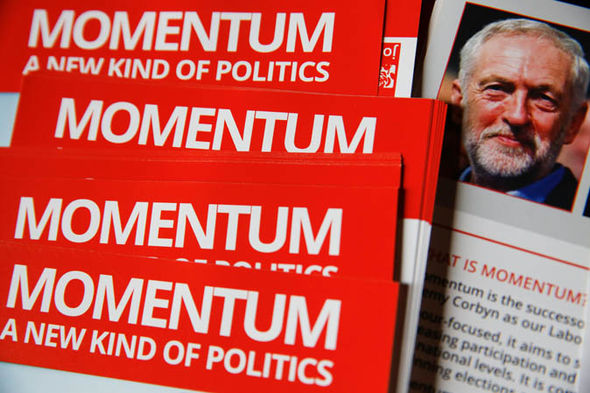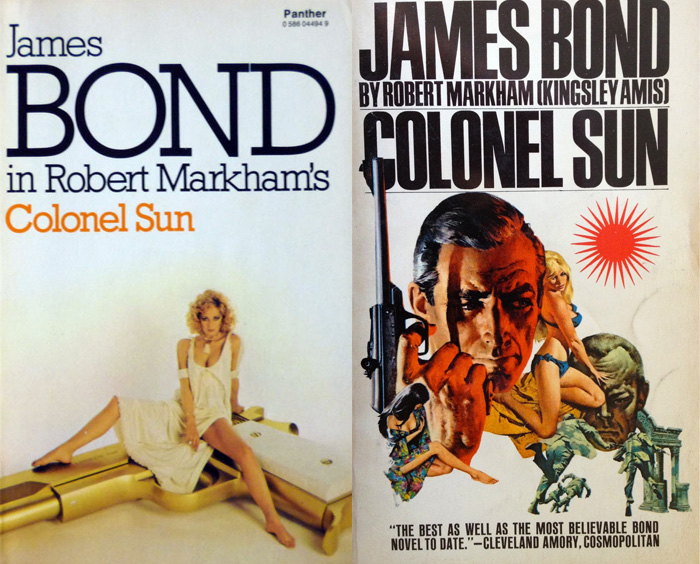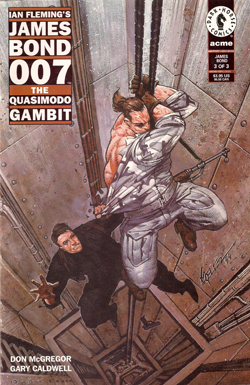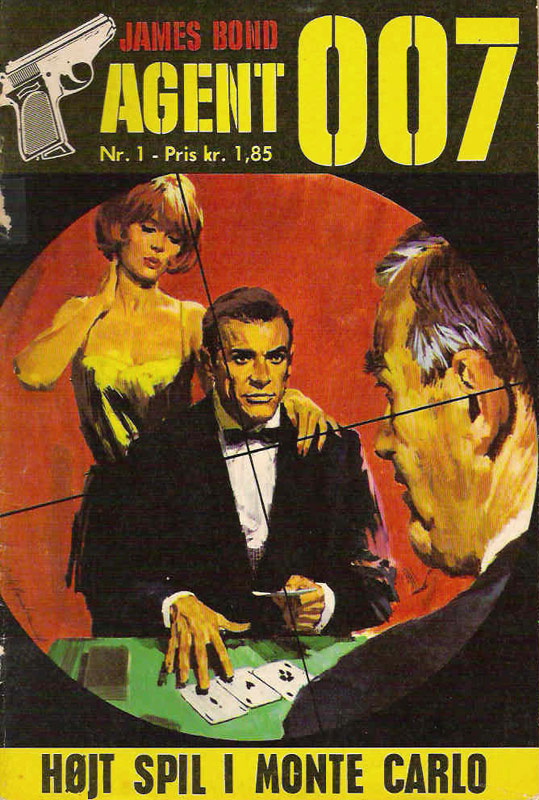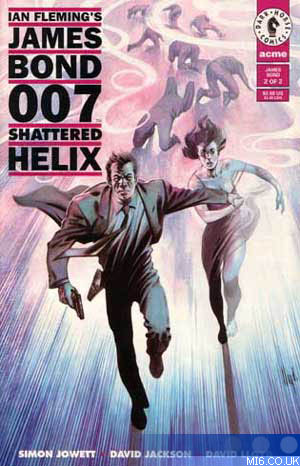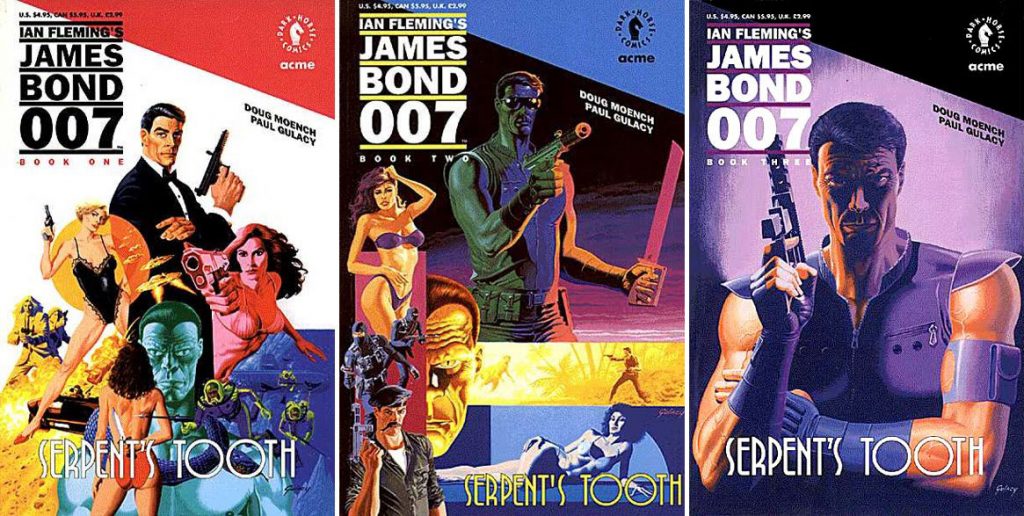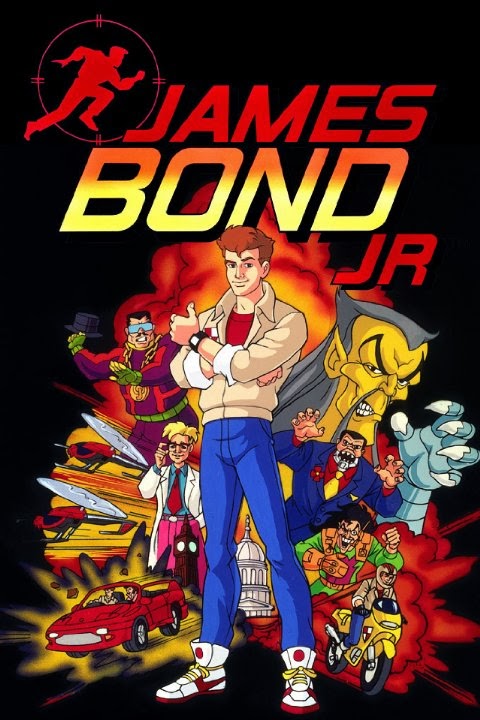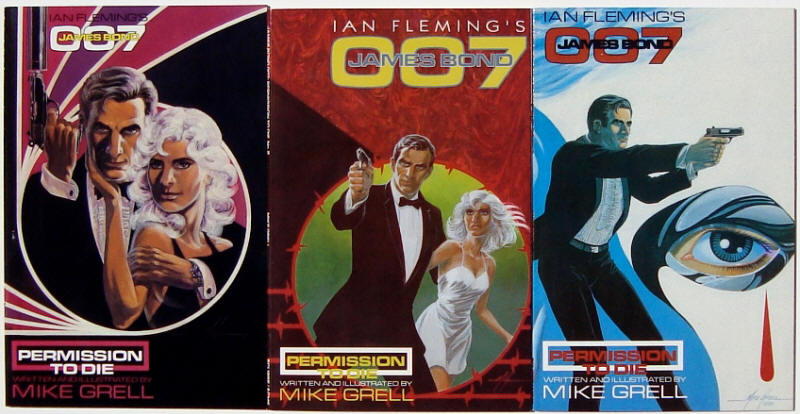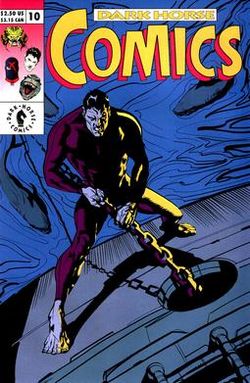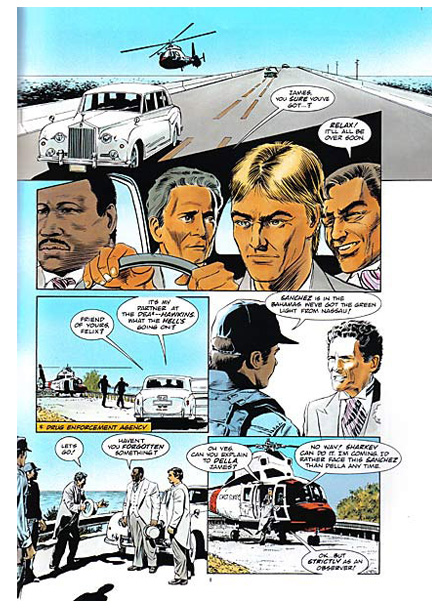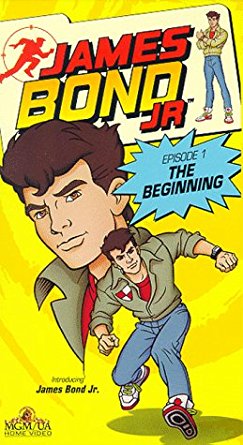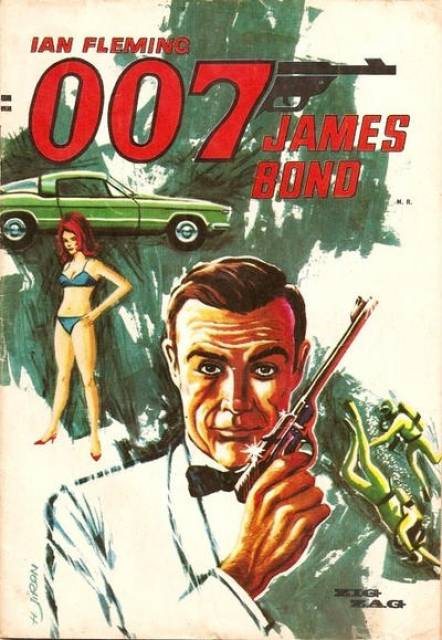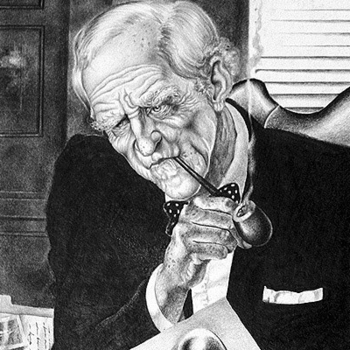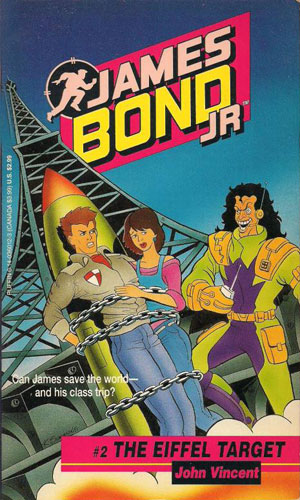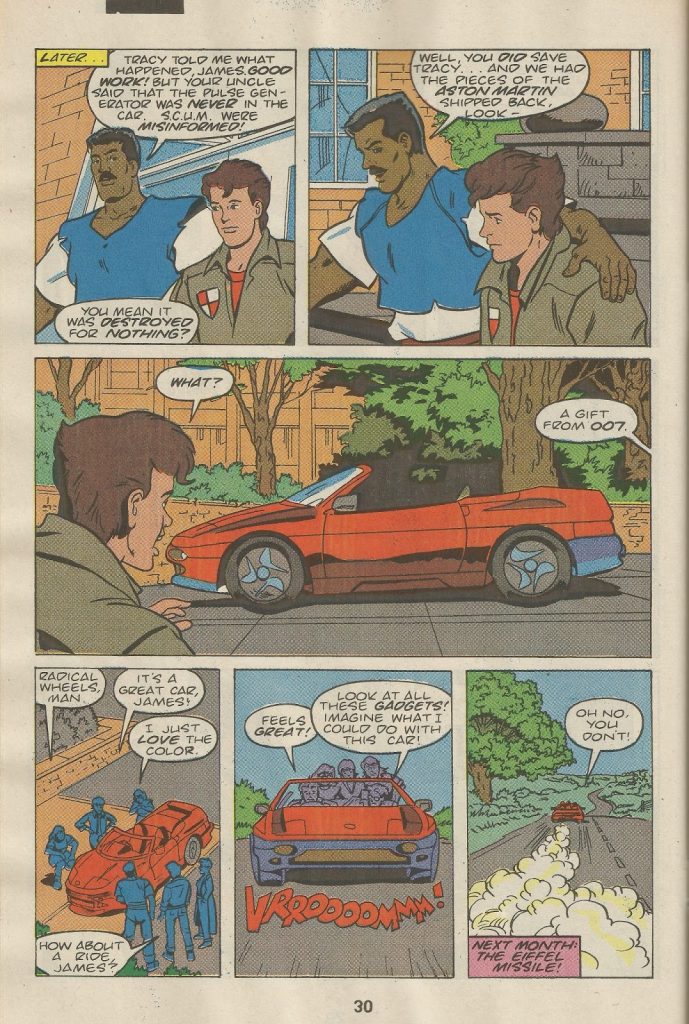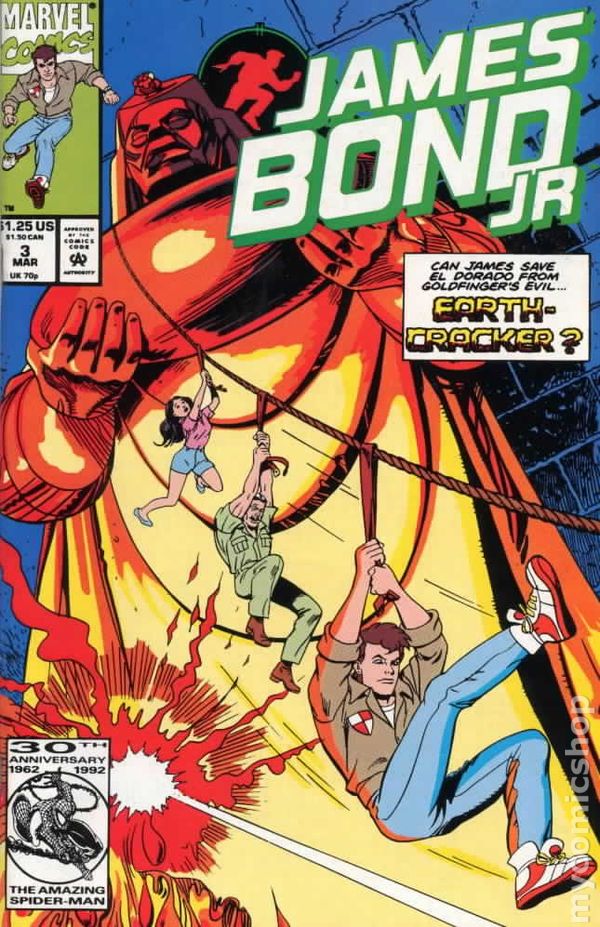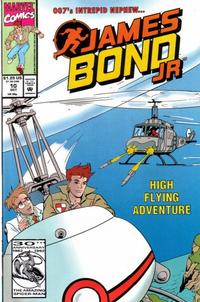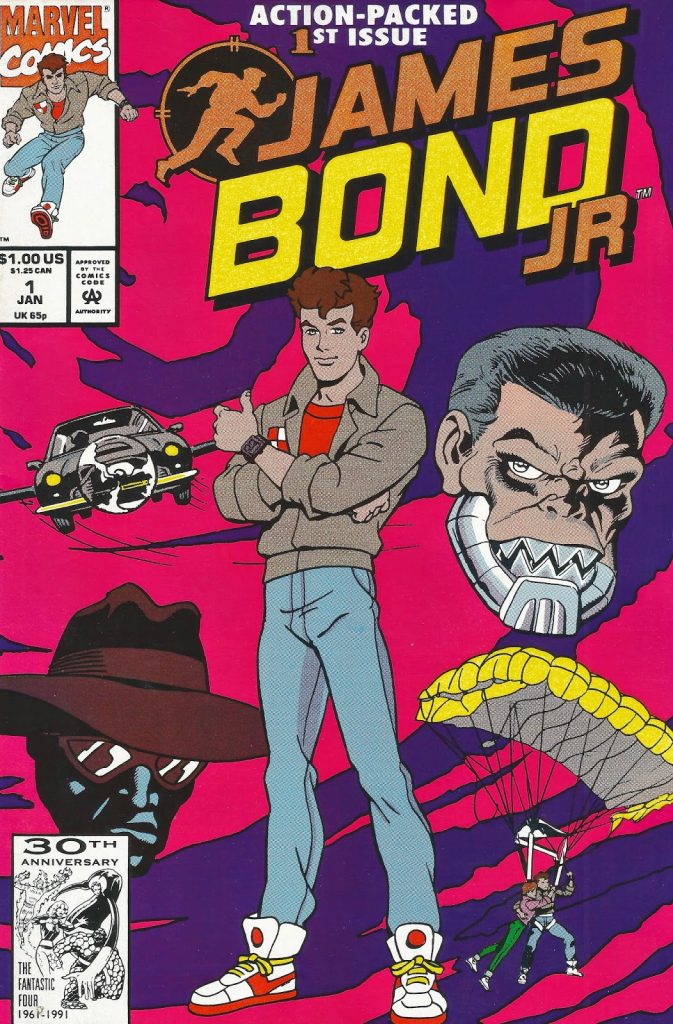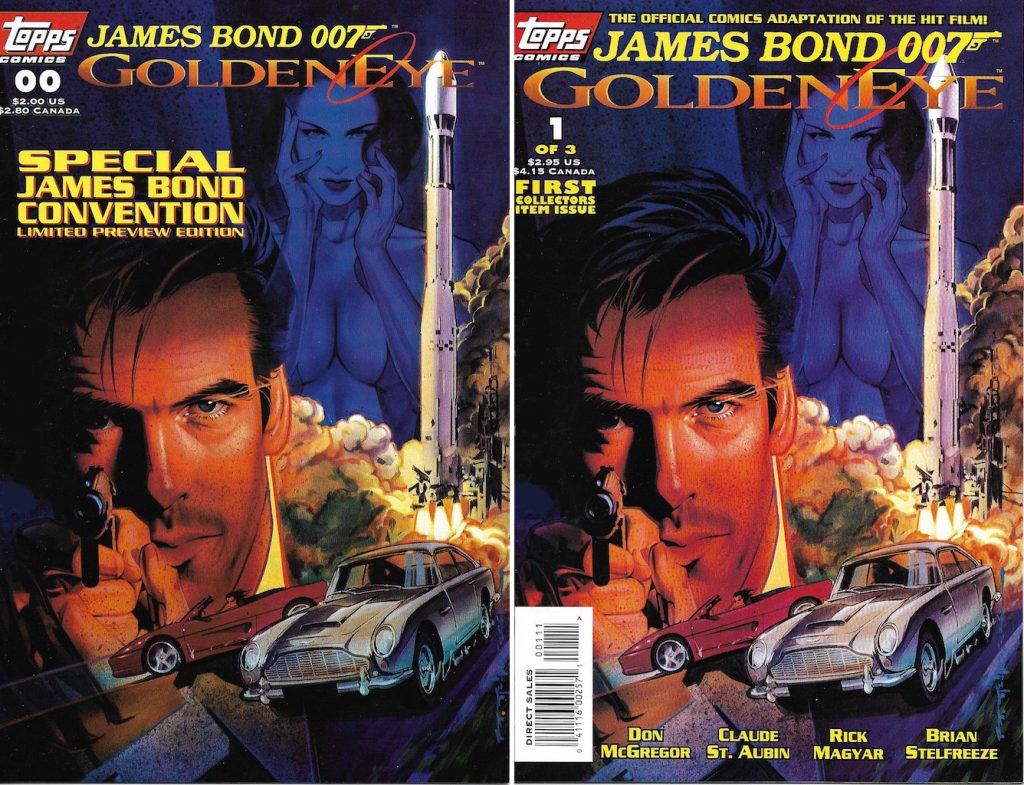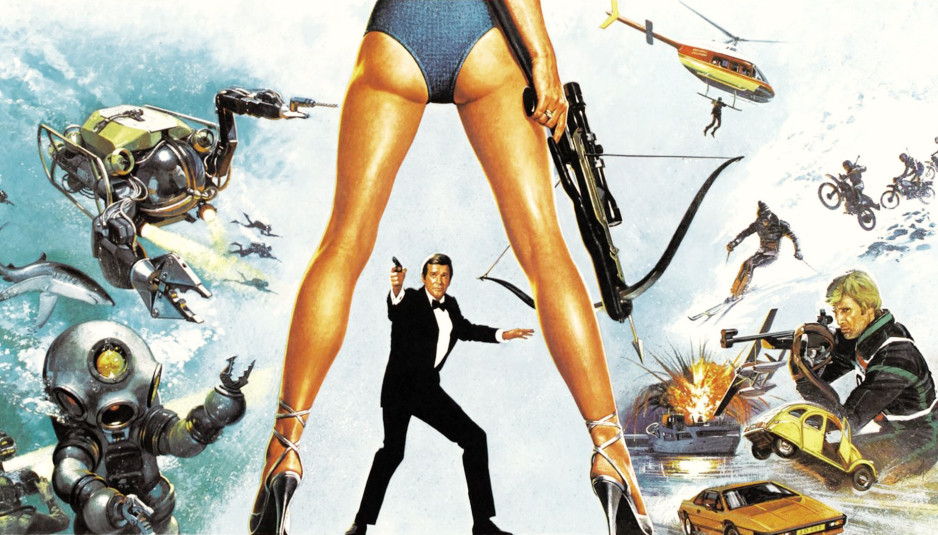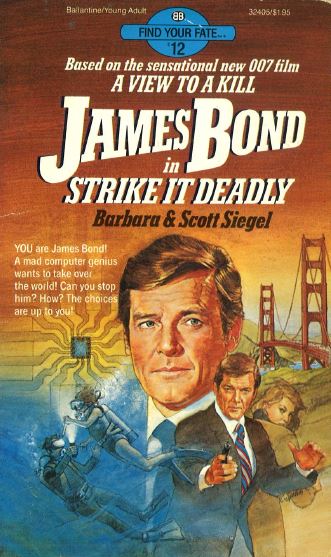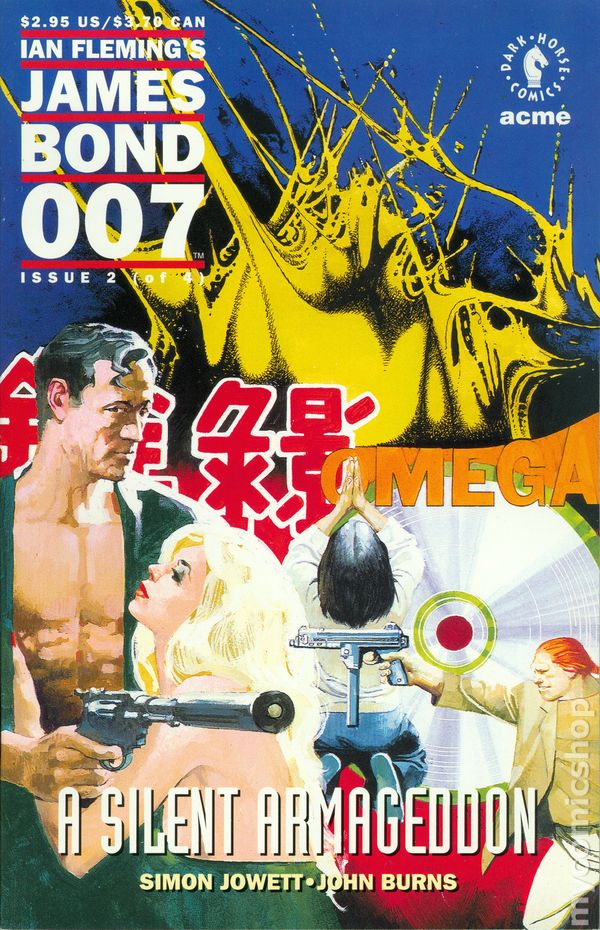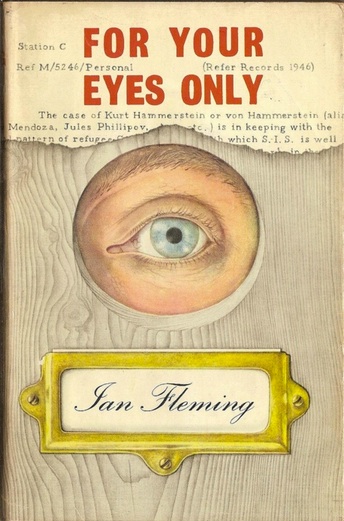 007Forever is honored to present these two items written by one of Ian Fleming`s closest friends, the author William Plomer. Though it`s likely there would have been a James Bond without Plomer, it`s unlikely that either Fleming or Bond would have been as successful.
007Forever is honored to present these two items written by one of Ian Fleming`s closest friends, the author William Plomer. Though it`s likely there would have been a James Bond without Plomer, it`s unlikely that either Fleming or Bond would have been as successful.
Special thanks to Duff Hart-Davis, the William Plomer estate, Ms Elizabeth Rainey, Durham University, and Peter F. Alexander for his book William Plomer: A Biography.
ADDRESS GIVEN at the MEMORIAL SERVICE FOR IAN FLEMING by WILLIAM PLOMER on SEPTEMBER 15th 1964
We have come together today to commemorate a man whose absence we can`t yet begin to get used to. Ian Fleming was decidedly a man of our time, but in any age such an uncommon personality, such varied gifts and high spirits, would make a strong impression. He made one feel one had to try and live up to his standard of alertness, to keep tuned up, and to move at his own quick tempo. He seemed always to take the shortest distance between two points in the shortest possible time, and although he didn`t suffer bores gladly, his appetite for life, his curiosity and quick understanding, and his admiration of what was well done used generally to bring out the best in other people. We miss him, and we shall go on missing him.
Because he was most widely known as a writer, let us think of that aspect of him first. Although his books made him world-famous, he was modest about them to the end. He took a proper pride in his inventiveness and skill, yet never pretended that his books were more than popular entertainments. After his faithful secretary, I happened to be the person who always had the privilege of being the first to read them. He was pleased when one praised him and always good-humoured when one proposed corrections or teased him: he had a way of thanking one, even for small services, which added to the pleasure of being able to help him.
His head was never turned by his enormous popular success. But popular success often rankles with the unsuccessful, and in the natural course of things he was exposed to envy: this was sometimes to be seen in print, but I never heard him take any notice of it. Of course not everybody could be expected to like his books. “They`re not my cup of tea,” one has heard people say, to which the obvious answer is that they are not cups of tea at all – they are something much more stimulating. It was a little distasteful when some persons who had read Ian`s books with enjoyment proceeded to speak too patronizingly of them or to run them down. Perhaps it is a residual puritanism that makes some people feel guilty when they have enjoyed anything: then, instead of blaming themselves for ingratitude, they find fault with the source of their pleasures. Let those who take too high a moral tone about the dream world of James Bond take note of the cheerful reactions of film audiences to his adventures, and I think they will find the atmosphere anything but corrupt.
Isn`t it possible that Bond and his adventures became world-famous, not only because of their excitingly realistic detail, but because they constitute a thoroughly romantic myth, a series of vivid fairy-tales, which seems to fulfil a persistent need? Isn`t it perhaps the simple, age-old need to escape from dullness by identifying oneself with a dragon-slaying and maiden-rescuing hero, who wins battle after battle against devilish forces of destruction, and yet continues indestructible himself?
What a feat to have re-created, in a new idiom, a myth of such universal appeal! And unprecedented in its way. Something near 20 million copies of Ian`s books have up to now been sold, and they have been translated so far into 18 languages, including Catalan and Turkish. They are read in Iceland and Thailand, in Japan and Brazil, and widely in America and Western Europe. They were appreciated by the late President Kennedy; they don`t go quite unnoticed in the curtained-off countries; in some places admirers have formed James Bond clubs; and vast new publics respond to James Bond films.
Although Ian`s health had been troubling him, he managed to complete an exciting new book that shows no least sign of a falling off. And we shan`t have to wait long for the publication of an entertaining and sympathetic appreciation of his work by a famous younger writer, Kingsley Amis. Also, Ian had completed three engaging books for the young. These show a happy, playful side of his character quite unfamiliar to the public. In the public eye, he was quite simply a pre-eminent writer of thrillers, Bond-like, with a supposedly sensational naval background; but the public eye is myopic, and can only take in one thing at a time. I have heard it said that there were several different Ians, and that he kept different parts of his life quite separate. If this is true, it is one more proof that the popular image of him is far too crude and flat.
Only since his death has it begun to be more generally understood that he had done well in several different careers, and that he was a character of some complexity. But those who were at school with him, or who used to work with him in the City, or in Reuters, or in the Admiralty, or in the newspaper world, or who had watched him creating his original and important library, or who saw him enjoying life in Jamaica, or who at any time travelled or played cards or golf with him, can confirm that he was a man who touched life at many points. And of how many men can one say, as one can of him, not only that he had much to give but gave all he had got? One is reminded of James Bond`s saying: “I shall not waste my days in trying to prolong them. I shall use my time.”
Ian`s energy must have been already apparent at Eton. I think it is not generally known what an athlete he was as a boy. At Eton he was twice Victor Ludorum, but even before he was sixteen he had won, I believe, every single athletic event except the high jump, and this caused him to be featured in the newsreels of those distant days. His bodily feats didn`t prevent him using his head. For instance, he pounced appreciatively at that time upon the first book of a then unknown writer – a book which in its season was probably an outstanding worst-seller, but which has turned out to have a lasting influence. This was nothing like a half-baked schoolboy of the flannelled-fool variety but already a young man with a mind searching for facts, pressing forward to discover what the world was like, and already using his valuable gift, so evident in his later career, of recognizing, and therefore encouraging, other men`s abilities.
His later education and experience were pretty varied – Sandhurst, Munich, Moscow, the City – and then, from 1939, seven years of his life were absorbed by his work in the Naval Intelligence Division. Just before the War, Admiral Godfrey, the Director of Naval Intelligence, who had long shown a more elastic understanding of the world and of his own profession than was likely to be discernible in more conventional sailors, recruited Ian from the City. This was on the recommendation of no lesser persons than Sir Edward Peacock and Sir Montague Norman, the Governor of the Bank of England.
It wasn`t only his quick and resourceful brain that Ian brought to the service of his country, but administrative ability. He was an unfailing source of brilliant and constructive ideas, and he had the faculty of knowing how to apply them in a practical way. Also, in a service traditionally silent, and sometimes tongue-tied, he was notably articulate both in conversation and on paper; and, like most capable officers, he felt that there were times when the risk of giving offence was nothing compared with the importance of being, if necessary, blunt. He was never ready to defer to pomposity, incompetence and red tape. As right-hand man to the Director of Naval Intelligence, Ian was inevitably tied down to the Admiralty, but he did make a number of necessary sorties, with or without his chief. No doubt it was his anxiety to take his own share in active service (though his own kind of service could hardly be called inactive) that caused Admiral Godfrey to send him to sea as an observer during the assault on Dieppe, with strict instructions to take care that he didn`t get lost in France.
I wish to emphasize, because it may not be fully understood even among many who knew him, or thought they knew him, that long before he began to write his first book, Ian was one of those whose services to his country, during those menacing years, made it possible for us to survive and to be here together indulging in reminiscence today. That may seem to you too obvious a remark, a kind of memorial cliche, but it isn`t. When I was lately talking over with Admiral Godfrey the nature of Ian`s wartime services, he summed it all up in a most memorable phrase, better I think than any laurel wreath or shining medal. “Ian”, he said, “was a war-winner.”
It was Admiral Godfrey who introduced him to the delights of under-water swimming, when it was much less familiar than it is now. It seemed an activity exactly made for him. It was athletic, it was not without its hazards, and it offered the discovery of a hidden world of fascinating mysteries. Discovery, I think, is a key-word: Ian was a great finder-out. And this predominant trait in his character helped to fit him for his valued association, after the War, with the Sunday Times, as its foreign manager. His ability and enterprise as a journalist can be seen in what may almost be called his instant travel-book, Thrilling Cities. That inquiring mind of his and that retentive memory would often surprise one. He was just as liable to reveal a knowledge of tropical birds or rare seashells, as of first editions or motor engines or the night life of Hamburg. What never surprised one, because one knew them to be constant, were his truthfulness and directness, his loyalties, and that restless, high-spirited independence which must sometimes have made him feel like a surf-rider alone with the speed of a tremendous wave.
Don`t let us indulge in vain regrets that he didn`t live longer, but let us be glad that he lived so intensely. Even that strong constitution began to feel the strain, and the last months of his life were anything but easy for him, as the prospect of a return to his usual courses, and then even the prospect of recovery, dwindled away. He was obviously quite unused and unadaptable to physical handicaps and restrictions, and he seemed quite incapable of learning to slow down or of giving in: he fought for life like a wounded tiger. In that fight the odds against him were too great, but he was sustained by his wife`s devotion and by her patience with his perfectly understandable impatience about his condition. In health and in sickness she gave his life a special significance, and nothing in it was more important than his feelings for her and for his son Caspar, to whose future we hopefully look forward.
I can`t step down from this place, and you wouldn`t wish me to, without reminding his widow and their son, and his other near and dear relations and friends, not all of whom are able to be here today, that our sympathy with them is unanimous. Remembering Ian, we share their bereavement; and when we think of him, with what his wartime associate Robert Harling has well described as his “sad, bony, fateful face”, let us remember him as he was on top of the world, with his foot on the accelerator, laughing at absurdities, enjoying discoveries, absorbed in his many interests and plans, fascinated and amused by places and people and facts and fantasies, an entertainer of millions, and for us a friend never to be forgotten.
PRIVATELY PRINTED
AT THE WESTERHAM PRESS
—————————————————————–
i>NOTES & TOPICS
Ian Fleming Remembered
IAN FLEMING made my acquaintance before I made his. It happened nearly forty years ago, when he was a boy at school. “I have a natural love of action,” he wrote many years later, and at Eton this was already plain: he as an athlete of exceptional power, and was twice Victor Ludorum. In fact before he was sixteen he had won every single athletic event except the high jump. This made news of more than Etonian interest and caused him to be featured in the newsreels of those pre-television days. But he was no small-brained muscle-boy; all through his life his physical energy ran, or jumped, neck and neck with intellectual curiosity. He evidently wanted to know all about life and a good deal about literature, and especially about its impact on life. It so happened that while Fleming was still at school my first novel made its appearance; he got hold of it, read it, and was excited by it. He had almost certainly never heard of me before, and I can`t remember what put him on to the book. He might have been guided by his sharp flair, like that of a mine-detector, for a new threat to dullness and complacency. Or possibly the use by reviewers of words like “volcanic” had aroused his interest. (There is evidence that the tremors set up by this book have continued in Africa until now, and it is at present being reprinted.) The thought occurs to me for the first time that Fleming may just conceivably have been a little influenced by Turbott Wolfe. It cannot be called a thriller, but many people found it disturbing. They were meant to. It recognised and asserted that life includes the head-on collision and struggle of violent forces.
I first met Fleming some years later, when I had returned to live in London. He asked me to a party in Chelsea given by his handsome mother. He was youthfully handsome himself, wearing a well-cut dark blue suit and with very good manners, easy, cheerful and welcoming. After Eton he had been at Sandhurst and in Munich, and was now in Reuters, which sent him at various times to Berlin and Moscow. He seemed to me to have good luck on his side – youth, health, strength, money, general eligibility, a social status taken for granted, work that interested him, and a consciousness of his powers. At that first encounter he struck me as no mere conventional young English man-of-the-world of his generation; he showed more character, a much quicker brain, and a promise of something dashing or daring. Like a mettlesome young horse, he seemed to show the whites of his eyes and to smell some battle from afar.
If I had been anything like an ambitious young man-of-the-world myself, or if I had been enjoying life less, I can imagine that I might have thought how pleasant it would be to be him. In fact such a thought could hardly have occurred to me, because our ways of life were quite different. Some of his keen interests – fast cars, golf, gambling – were as immeasurably far from mine as some of mine from his. But his liveliness and curiosity were congenial to me, and we were responsive to each other`s jokes, anecdotes, and opinions.
DURING THE SECOND WORLD WAR our paths began to converge. We were in the same service and for some of the time under the same roof. Myself embattled as that marginal anomaly, a civilian officer on the Naval Staff, I was an inconspicuous but diligent auxiliary o the Naval Intelligence Division, in which Fleming`s role was important. His responsibilities at the Admiralty gave him scope for some of his best abilities and he enjoyed exercising them. They were most efficiently applied to defeating the enemy; and Admiral Godfrey, at that time Director of Naval Intelligence, looks back upon him as a “war winner.”
Fleming`s private self – or selves, because he was not a man of a single interest or a single aspect – seemed to some to be hidden, or withdrawn. There were persons near him during the War who felt that they never really knew him except as an active functionary, polite and often cheerful with those who seemed to him properly tuned up, and capable of being abrupt with others. I suppose his inmost self to have been strongly fortified, and I should guess that some who were much attracted by him, and believe themselves attractive to him, may have found to their disappointment or even sorrow that any right of way through the fortifications, or tenancy within, was denied to them. He was perhaps too self-possessed a man to tolerate possessiveness aimed at him by others. In those strenuous wartime days he did not give, or give so clearly, the sense he occasionally conveyed of being alone when not alone. His wartime associate Robert Harling has written of Fleming`s “sad, bony, fateful face.” There were moments, as he grew older, when with its heavy eyelids and mixed look of determination and abstraction, it looked like a sculptured mask of melancholy.
I have heard it said of him that he kept his life in separate compartments. So he did, but surely that is quite usual for persons with many different activities and interests, who touch life at various levels that do not overlap and may have nothing in common with one another.
Once during the War, when some of its worst phases were past, we were feeding alone together and found time to speak of what we intended to do when it was over. With a diffidence that came surprisingly from so buoyant a man, he said he had a wish to write a thriller. He may not have used exactly that word, but made it quite plain that he had in mind some exciting story of espionage and sudden death. I at once made it equally plain how strongly I believed in his ability to write such a book, and in its probable originality. “But,” I said, “it`s no good writing just one. With that sort of book, you must become regular in your habits. You must hit the nail again and again with the same hammer until it`s driven into the thick head of your potential public.” He gave me a long and thoughtful look.
It as not until he was at his Jamaican house at the beginning of 1951 that he sat down to write Casino Royale. I knew nothing about it.
“When I got back to London,” he wrote some years later, “I did nothing with the manuscript. I was too ashamed of it. No publisher would want it, and, if one did, I would not have the face to see it in print.” He went on to explain how one day he had been lunching with me, and had asked me “how you got cigarette smoke out of a woman once you`ve got it in.”
Always, I hope, alert to the caprices of the human race, and generally expectant that they are likely to be grotesque, I must have speculated rapidly about this intimate-sounding injection. He went on to explain that one couldn`t use a world like “exhales,” and “puffs it out,” he thought, sounded silly. And then – “William looked at me sharply: “You`ve written a book.””
Of course I asked to see it. He felt that I would “tell the horrible truth about the book without condemning me or being scornful.”
I read, I applauded, he conquered.
THE BEST AND MOST entertaining analysis of his thrillers ever likely to be written is to be found in Kingsley Amis` forthcoming book. My own summary view of them is that they are brilliant, romantic fairy-tales in which a dragon-slaying maiden-rescuing hero wins battle after battle against devilish forces of destruction, and yet is indestructible himself: an ancient kind of myth skilfully re-created in a modern idiom. They are, like life, sexy and violent, but I have never thought them corrupting. Compared with some of the nasty stuff that gets into print, they have a sort of boyish innocence.
In the popular imagination Fleming is confused with or thought to have been identical with James Bond. There may be something Flemingish about Bond, but I didn`t see much of Bond in Fleming, who was more perturbable. Let us admit, as Fleming himself did, that Bond and his adventures are something of an adolescent fantasy. Is there anything wrong in that? Not at the box office. At the time of his death some 20 millions copies of his books had been sold and they had been translated by then into eighteen languages. The films have already captured vast audiences.
Fleming`s attitude to his own books was perfectly straightforward. He was pleased that they did so well (who, in his place, wouldn`t have been?), took a proper pride in his skill in composing them, and was delighted that they pleased readers worth pleasing – President Kennedy, for instance. But there was never any sign that he pretended to himself or to anybody else that the literary value of what he wrote was underestimated. It did please him to pretend that I was a sort of only begetter of his books, which was nonsense. Or was it just an indication of his characteristic capacity for gratitude? As somebody who knew him well reminded me lately, “Ian always said thank you.” Some of the inscriptions in the copies of his books he gave me repeated the unearned but recurrent compliment – for example, in my copy of Goldfinger, “To William, who started these balls rolling.”
In fact I used to be the first person to whom his books were shown, partly for professional reasons. When I found things to praise, he seemed pleased; when I suggested emendations, he was attentive – sometimes too attentive. I once said to him, just after reading a new James Bond typescript, that although the persons in it often made exclamatory remarks, these were never followed by a point of exclamation. I said this half-teasingly, but he took it so seriously that when the book came out, the New York Times took him to task for peppering his pages, like a schoolgirl, with exclamation marks.
I thought it admirable and dignified in him that he appeared to take no notice whatever of the envy he naturally provoked. This envy showed itself sometimes in spiteful or patronising reviews or gossip. Ungenerous natures, without a tenth of his vitality, brains, or experience, would sometimes try and mask their envy by disapproval or by affecting a high moral tone about his books, calling them sadistic (understandably) or “snobbish” – by which I suppose they meant status-conscious or something. To some people, naturally, the books could not and cannot appeal. “Not my cup of tea,” I have heard some say: the answer to that is that the Bond book are not cups of tea at all, but something more stimulating. In any case, what on earth would be the character of a book that was everybody`s cup of anything? Though to some the books are distasteful, I have never heard them called boring.
ONE COULD HARDLY CALL Fleming a bookish man, which suggests somehow an untidy, bespectacled, bible-backed, pedantic half-recluse. But he had an active interest in book-collecting and had built up a remarkable library, concerned with the impact of literature, of new ideas in literature upon life. An assiduous reader of The Times Literary Supplement, he had a sharp eye and good memory for critical or bibliographical details.
If a biography of him is ever written, competently written, he will be seen as a man who was successful in several different spheres of action, and who made full use of his lease of life. When his health was no longer good, it was impossible to imagine him settling down to the existence of a prudent invalid obsessed with trying to make it last as long as possible. I think he knew he had, as they say, “had it.”
In his will he generously left me and two or three other friends some money to be spent within a year on some “extravagance.” I would rather he had survived me. No extravagance by us can disguise though it may commemorate his absence. Whatever the money is spent on I shall think of him looking over my shoulder, curious to see how it is being used, a little ironic and (I hope) pleased.
Wililam Plomer
[The article first appeared in the January 1965 Encounter]
WILLIAM PLOMER BIOGRAPHY AND APPRECIATION
William (Charles Franklyn) Plomer (whose surname rhymes with “rumour”), a respected poet and novelist, was born December 10th, 1903 in Pietersberg, South Africa, to English parents. Spending most of his life in England, he didn`t consider himself South African. “I once had a cat [that] had kittens in the oven, but no one mistook them for biscuits.”
Educated mostly in England, Plomer and his family moved back to South Africa in 1914, where he spent three miserable years at a British boarding school. Plomer`s father – a ne`er-do-well who domineered his family and drifted from one job to the next, eventually becoming a minor civil servant – had wanted to avoid service in WWI. Plomer began writing poetry in 1920, and that same year, he left school and his father forced him into sheep farming. Plomer subsequently admitted that he wasn`t much good at it, however, life on the farm and the South African racial strife he witnessed first-hand provided much background material and characters for his first novel, Turbott Wolfe, which he began when 19. Plomer also drew – this is a neglected aspect of his life – and for many years wasn`t sure whether he would paint or write.
After Plomer`s father suffered a nervous breakdown and was retired from the civil service, the two took over a run-down native trading station in a desolate Zulu reserve. Unlike some of their white neighbours, father and son developed a rapport with the Zulus but were disliked by the other whites, also for having a higher standard of living.
Plomer began contributing poems to the Zulu paper Ilanga lase Natal in 1924 under the pseudonym “PQR”, and took details of his life in the trading station and those around him, as he did with life on the sheep farm, for his novel Turbott Wolfe, about a white painter who runs a store and encourages miscegenation (“race mixing”, which at this stage wasn`t outlawed).
Only 21, he submitted the manuscript to Leonard and Virginia Woolf`s Hogarth Press. One front-page headline review read “A NASTY BOOK ON A NASTY SUBJECT”. Cyril Connolly (noted author, Ian Fleming friend and author of the Bond story Bond Strikes Camp) considered it one of the “key books” of modern literature. Literary critic Martin Seymour-Smith subsequently wrote that Plomer “was the first modern South African writer of English fiction to try to see Africans as they actually are. His first novel […] bears obvious signs of its author`s youth; but it remains a passionate demonstration that a human way for South Africa would be through miscegenation.” By the 1960`s, the South African library system supposedly had to keep its copy under lock and key.
In June 1925 he met the young poet Roy Campbell, editor of the new magazine Voorslag (“Whiplash”) who hired Plomer on as sub-editor. Plomer in turn arranged for South African writer Laurens van der Post to join the magazine. All three opposed anti-black sentiments and the magazine was controversial from the start. Campbell bumped heads with the magazine`s backers before the first issue appeared in June 1926, and resigned by the third issue (effectively taking Plomer with him).
Much of what Plomer now wrote attacked whites and praised blacks: “such a direct onslaught on this vast mass of crawling filthiness called South Africa… It is a lovely country […] and I know it and love it, and I know the nobility of the natives and their unsurpassable human qualities, but the whites are unspeakable… a man doesn`t go against his countrymen without reason.”
At about this same time a Japanese ship captain (Mori) arranged for Van der Post and Plomer to visit Japan. Though Van der Post returned to South Africa, Plomer stayed on for three years, which gave him much material for his wonderful second novel Sado. Plomer taught at a “not especially exalted teachers` training college” since “Native speakers of English were in short supply in Tokyo.” He suffered financial and housing difficulties, cold weather, ill health, and was unable to properly learn the language except for understanding the most rudimentary spoken phrases. His prospects however soon improved and he got a better paying job teaching at a Japanese high-school, and took a small village house with a male Imperial University student, the first of two students he was to live with in Japan. Plomer was open to his students, even inviting them to visit him at home. Friends remarked on the austerity of his surroundings – he owned few material possessions, a trait he kept for the rest of his life. One night while visiting Hiroshima, he saw a “curious domed cloud of smoke floating over the city” at a fireworks display, which he subsequently used for his brilliant story Thy Neighbour`s Creed (published in his 1949 collection Four Countries) about an elderly Japanese man who has premonitions of Hiroshima and Nagasaki. (Plomer, unlike many others, was quite sympathetic to the Japanese both during and after WWII.)
However, Plomer was too much the outsider (which was true no matter where he went most of his life), and didn`t feel at home in Japan. He left before his ties with the country and current mate got any stronger, and also because he feared his life might be in danger; his short story collection Paper Houses, in which he mercilessly attacked Japanese life and nationalism (in the story Mother Kamchatka) was about to be published. (Plomer was later offered the chair of English literature at Imperial University in Tokyo, which would have paid very well, but declined, determined not to return to Japan.) Back in England, he lived with his parents – his father still just as difficult – and worked on his Japanese novel Sado. Through Virginia Woolf, Plomer met and was embraced by the Bloomsbury set and Bohemian literary London, including Lytton Strachey, TS Eliot, and many others, some of whom got him book reviewing assignments with prestigious journals. He also met Somerset Maugham, Herbert Read, and, in 1931, John Lehmann who then had begun working at the Hogarth Press. During the mid 1930`s, Plomer became a regular contributor to publications where his friends worked.
Much is made elsewhere about the fan letter Ian Fleming sent Plomer (then still in Japan) about Turbott Wolfe – arguably a crucial moment in Fleming`s life and James Bond`s future. At approximately the same time, Anthony Butts, a dilettante painter and playwright also wrote praising Turbott Wolfe; the two men were to grow close. In 1929, after Plomer had returned to England, EM Forster (A Passage To India) wrote praising Plomer`s short story Ula Masondo. The two remained friends until Forster`s death in 1970. Forster even asked Plomer to be his official biographer, though nothing came of it. In 1955, when reviewing A Shot In The Park, Forster wrote that Plomer is “my favourite living contemporary poet… [his work is] full of colour, feeling, distinction, character-drawing, epigram, and mischievousness.” Elizabeth Bowen, whom he also subsequently met, also wrote at the end of 1933 complimenting him on his novel The Invaders.
Unhappy living with his parents (which he never regarded as a “home”), he moved to London in September 1929. His books made him little money, so occasional reviews, and a regular article he wrote for the Cape Times (thanks to Van der Post`s intervention) gave him enough money to move into a large, cheerful mid-Victorian house in Bayswater, run by a pretty young woman, whom Plomer liked. Her husband, though, was violent and terrified her. Early one Sunday morning, the man, wrongly figuring that she and Plomer were romantically involved, slashed his wife to death with a razor in front of their 6 year old daughter. He then went looking for Plomer, who was away that weekend. When Plomer got back he had to clean the place up, including picking scraps of flesh from the carpet. At his birthdary party, which he held in the murder-house several days later, he told Virginia Woolf that while murders were not his line as a novelist, he had been fascinated by crimes of violence from childhood. Plomer brooded on the matter for two years and based his subsequent novel The Case Is Altered very closely on the incident.
Plomer`s friendship with the hot-headed Roy Campbell drifted apart and finally ended for good in 1933 when Campbell`s wife kissed Plomer in the back seat of taxi. Campbell was more offended than Plomer. He however made new friends, including the young, still unknown poet Stephen Spender early in 1930, and through him, the poet WH Auden and the author Christopher Isherwood (whose novel Goodbye To Berlin became the film Cabaret). Plomer found these friendships useful in that he got reviewing work and outlets for articles and poems out of them. He now also published his poetry in important journals and magazines almost immediately after writing it.
By Plomer`s own admission, he led a rather lazy life during the 1930`s which he never made up for after. He wrote less, content to drift, living mostly on his earnings as a regular fiction reviewer for the Spectator, and any paying publication. By 1935, his income had dropped to 386 pounds, and that was mostly spent on young men. Troubled by not belonging anywhere, Plomer once wrote to Virginia Woolf saying, “I don`t suppose you know how separate I feel myself from all my contemporaries.”
Plomer and Anthony Butts, who had become close friends, also became travelling companions by the end of 1929 and travelled through Europe in 1930. They settled in Greece, where Plomer wrote stories and an unfinished novel Memoirs of an Emigrant. The trip was cut short when Butts, who was footing the trip, heard from his mother that she could send no more money because the family finances were shaky. Worse, Plomer heard that his mother had been operated on for cancer (both of Plomer`s parents were to die from cancer: his mother in October 1939, and his father in January 1955). Moreover Nicky, the blond sailor Plomer had been involved with grew bored, left him for another moneyed foreigner, taking Plomer`s savings, giving him a venereal disease. Some have said that Plomer never outgrew this traumatic experience. “If one is conscious of intense happiness, one is a fool to trust it.” He returned to England in November 1930, his mother sick, though recuperating and his father even more difficult and domineering. Unable to live with them, Plomer moved to Herefordshire, on the Welsh border, and wrote 170,000 words of his autobiographical novel, which dealt with his move from Africa to Japan and then on to Europe. Its hero, Plomer was later to say, “made the awful discovery that love, to come into being, may even need something more than the wonderful coincidence of the time and the place and loved one.” Unlike Turbott Wolfe, Plomer struggled long and hard with this novel, having already destroyed 50,000 words of it in August 1929. (Later, after he became Cape reader, Plomer wrote to fellow novelist Elizabeth Bowen, “of course it takes up nearly all my time, and as I still do a certain amount of reviewing I seldom have a moment. It`s annoying, as I feel a novel ripening.” Plomer wrote 25,000 words before destroying it – an extremely annoying habit of his that he did several times throughout his life.)
The Woolfs and their reader thought the novel episodic and Plomer reluctantly agreed to rewrite it and cut it in half. He believed that his difficulties resulted from his frustrated attempts to get to grips with what he called his “real nature”, and wrote to Van der Post, “I am trying to learn to conduct my life & work in accordance with my real nature, & although I am nearer to it than I was, I have still difficulties to surmount.”
His health deteriorating, and on a 10 pound advance, he moved into a sleazy bed-sitting-room in London. Van der Post found him one of many down-and-nearly-outs in England at that time; during a late long-night walk, Plomer talked of suicide. “It was the only time I really saw William completely vulnerable and exposed and finished and he didn`t care who knew it – there was no pose about it.” He believed the affair with Nicky was a turning-point in Plomer`s life – Plomer had put everything for the first time in his life into his love for Nicky. It`s been said that Plomer was always attracted what he considered his social inferiors, whether they be Zulus or his Japanese students, because it gave him control over the relationship. (It`s also been claimed that to many, the lower-classes “reeked” of sex.)
By May 1931, Plomer had salvaged the Japanese section from his long autobiographical novel and published it that autumn as Sado (They Never Come Back in the US); the remaining South African, Greek and English sections were either scrapped or used as short stories in his 1933 collection The Child Of Queen Victoria. Set in Japan, the novel is about an Englishman, loved by an exiled Englishwoman, who becomes involved with the title character – this particular aspect of the book was clearly modelled on Plomer`s own relationship with a Japanese student. The novel was generally well-received, though Virginia Woolf herself didn`t like it, finding it too episodic, and Spender thought the characters effete. Forster enjoyed it and it`s my personal favourite Plomer novel. Very subtle, and a lightning-paced read, the brilliant first half gives way to a confused, slightly inert, second half.
At Anthony Butts` invitation and urging, Plomer moved into Butts` spacious house in December 1931. Unlike Plomer, Anthony Butts was happy to live in chaos. Some had said of Butts, “his behaviour was eccentric, extravagant, and self-destructive.” He travelled, gambled, drank, and lavished money on friends. He and his mother – who had taken a lobster to a chemist to be chloroformed – once wealthy, were by now almost broke. Plomer would say (ironically, given Butts` death), “My God, Tony, you`ll end in the gutter if you aren`t careful,” but Butts would laugh. His disorder pulled Plomer`s life into disorder; gradually, under his influence, Plomer`s own life slipped once more into disorder.
Plomer spent the beginning of 1932 working quickly to write The Case Is Altered, the factual novel about his murdered landlady, which “brought together Britons of different classes and backgrounds, assembled them under a single roof”. Plomer`s publishers rightly saw the book as a potential bestseller, and were proven correct, though I consider it Plomer`s weakest novel, and somewhat padded. However, he earned 1051 pounds that year, nearly 900 pounds more than in 1931. His next poetry work, though, Fivefold Screen, published in April 1932, lost money. Plomer explained that poetry was “a handful of semi-precious stones, which came in for the admiration of others, but were not much in demand,” and almost completely stopped writing verse until after the war.
Plomer moved out of Butts` house in September 1932, and took up with Bernard Bayes, a Royal Guard, though this relationship subsequently proved unsatisfactory. Plomer considered getting married, but the woman in question turned him down – partly because she was involved with Van der Post. Though Plomer`s friendship with her remained intact, his friendship with Van der Post faltered; he even downplayed Van der Post in his own autobiography. It`s been said that “Another side-effect of this rejection was a harshness in some of his comments about women, and a growing dislike of them.” He was occasionally hostile and rude to them and his poetry in the late 30s and early 40s became more satirical, more grotesque, emphasizing the sleazier aspects of sexual transactions in London, and occasionally quite graphic about violence against women. Women disgusted him sexually, and during his voyage to Japan in 1926 was at his wits` end when the unwitting Captain Mori nearly took him to a brothel.
Frustrated with how the Hogarth Press promoted his books, Plomer jumped at the chance to join his friend Rupert Hart-Davis at Jonathan Cape. Hart-Davis liked Plomer`s writing and would become Plomer`s literary executor. Discussing The Child Of Queen Victoria, Cape`s reader, Edward Garnett wrote “Plomer is certainly about the most original and keenest mind of the younger generation.” Somerset Maugham wrote to Cape praising the book, “Plomer has brought it off wonderfully.” However only 87 copies had sold by October 1933.
Cape pushed Plomer for a novel, and the result, The Invaders, published in October 1934, about young adults and their experiences in London, is probably his easiest to read and, expectedly, his most superficial. Plomer found the book a struggle because he knew little about young women, though he based one of the male characters on Bernard Bayes, the Royal Guard with whom he`d lived. It seems to have been Plomer`s least well-received novel. Virginia Woolf felt that Plomer had lost his punch, which may be why she let him go to Cape; Christopher Isherwood initially disliked it and Peter Quennell criticized the work for its ambiguity, though EM Forster gave Plomer qualified support.
Even Plomer`s biographer Peter Alexander argues, “It may be that Plomer had succeeded a little too well in turning himself into an Englishman; in the pursuit of balance and moderation, he had lost his South African fire[.] The aspects of English life about which he felt strongly, such as the official attitude to homosexuality, his by now impenetrable mask prevented him from addressing openly. The result was increasing paralysis of his creative powers. Nor were the laws or even the conventions of the period to blame for his reticence; [other] writers had dealt explicitly with homosexuality, and Plomer`s publishers actually encouraged him to be more open about the matter in The Invaders[.]
From August 1933 to February 1935, Plomer struggled with a new novel, writing 25,000 words before ultimately scrapping it. In a rut, and on Hart-Davis`s suggestion, he jumped at the chance of writing a biography about Albanian warlord Ali Pasha. A painting of one of Pasha`s massacres of the Suliot women and children had drawn Plomer`s attention during Corfu visit, and the image had haunted him. Plomer enjoyed writing the book, which was well-received when it was published in March 1936. Plomer`s biographer Peter F Alexander writes that “the result was one of his most careful and readable books, a scholarly production that drew compliments from professional historians[.]” Historian AJP Taylor wrote “Mr Plomer`s name is sufficient guarantee for the force and brilliance of Ali`s biography. No one could have told better the barbaric story”.
In early 1937, Plomer and EM Forster did a BBC radio broadcast, which went over well; Plomer would be invited back to broadcast regularly on literary topics thereafter. These apperances and his book reviews were often his main source of income.
Also that year, Plomer became Jonathan Cape`s part-time (on Rupert Hart-Davis` suggestion) when their reader Edward Garnett died. Plomer never really got along with Cape – few people did – but he respected him. Plomer and Hart-Davis nicknamed Cape “the Giant Bore”, seemingly because of Cape`s monologue rolling. To Cape, a conversation, meant he talked, you listened. Plomer was also later to write that “Jonathan Cape`s name was not exactly a byword for spendthrift exuberance”.
Plomer waded through mostly ill-typed manuscripts, many of them unsolicited and devoid of merit, hoping to find that rare gem, which is how he discovered parish curate Francis Kilvert`s diaries (1870-1879). Plomer edited the original 22 volumes down to a three volume selection published from 1938 to 1944. Much to everybody`s surprise, the first volume was a smash success, perhaps as some have suggested because it was a contrast to Europe`s pre-war tensions.
As Cape reader, Plomer discovered John Fowles (The Collector, The Magus, The French Lieutenant`s Woman), Alan Paton (Cry The Beloved Country), Arthur Koestler (Darkness At Noon), Stevie Smith, Derek Walcott, poet laureate John Betjeman and Lolita author Vladimir Nabokov – both of whom Cape rejected – and Ian Fleming.
Those who read Plomer`s reports often marvelled at the care he took, though Malcolm Lowry wasn`t taken with Plomer`s reasons for rejecting Under The Volcano. Plomer objected when Lowry`s literary executors attempted to publish it, and the report was subsequently removed.
It was through Ian Fleming, Admiral Godfrey`s personal assistant, that Plomer joined Naval Intelligence in July 1940 during the war. Plomer prepared written reports of incoming intelligence, occasionally appending his own witty comments which weren`t always appreciated. (Fleming used his massive powers as Admiral Godfrey`s personal assistant to recruit many of his own friends into the NID, including Alan Ross, whom Fleming named the unfortunate station head in The Man With The Golden Gun after. Years later Plomer and Ross were brought together not only by London Magazine, which Ross edited, but also when Ross joined Plomer on the Cholmondeley award committee.)
During the war, a passing enemy airplane shot at and almost killed Plomer, which helped prompt him write his autobiography, Double Lives. The book sold well and EM Forster and Christopher Isherwood praised it. Plomer also worked on other projects; his friend Anthony Butts who had killed himself in May 1941 after struggling against terminal cancer, had left behind a manuscript consisting of anecdotes and stories about Butts` own family, which Plomer edited and revised (crediting himself as “William D`Arfey”). The subsequent book, Curious Relations, sold well when published in 1945.
In early 1943, Plomer was arrested for propositioning a sailor whom he thought obliging. (Homosexuality was then still illegal in Britain.) He was spared prosecution when Fleming intervened, claiming that Plomer was of national importance. After this close call, Plomer, who had always been private, often compartmentalizing his personal life (he often kept his various friends apart), became obsessively secret and destroyed many of his letters to friends such as the poets Steven Spender, John Lehmann, writer Christopher Isherwood and even some of his letters to EM Forster. After a bad depression and on the verge of a nervous breakdown, Plomer, eager to settle down and find a permanent partner, met Charles Erdmann, a London-born German immigrant, living off restaurant tips in a cellar. Plomer invited Erdmann to move into his home, figuring the relationship would only be temporary. It lasted until Plomer`s death – their last 21 years spent living quietly in Sussex.
After the war, he returned to Cape, disappointed that he would now only be junior reader. Thanks to Ian Fleming, Plomer had gotten an inside look at the war effort and by war`s end, had the foresight to realize that “far from relaxing into peace, Britain should be preparing for another extended war, with Russia this time.”
In December 1947, Fleming introduced himself to Plomer`s friend Edith Sitwell at a luncheon in London where her brother Osbert was awarded the Sunday Times prize for his writing. She treated Fleming coldly, later telling Plomer, “I thought at first, from his manner with her, that he was Lady Cunard`s social secretary, but realized afterwards that she would scarcely have employed him in that capacity.” To break the ice, Fleming had told Sitwell he knew Plomer and was very amused that Plomer had listed Sitwell`s Shadow Of Cain among his favourite books in an article in Horizon. Sitwell was enraged by his use of the word amused. Plomer promised to speak to Fleming about it, who in turn apologized. Sitwell subsequently invited Fleming to a June 1948 luncheon that Plomer, TS Elliot, Lehmann, and Maurice Bowra also attended. Fleming, horrified by the “array of talent” present, said, “Please let me sit in the shadow of William.”
Fleming considered Plomer his closest friend in the publishing world and on Plomer`s advice, Cape sent Fleming books that the latter might mention favourably. Plomer also believed that Fleming could write a first-rate thriller if he chose, and as is explained elsewhere, on May 12th 1952, during lunch, Fleming mentioned how difficult it was to describe a woman exhaling smoke. Plomer looked at him sharply: “You`ve written a novel.” A rather sheepish Fleming admitted that he had, and after a postcard reminding Fleming of his own promise, he reluctantly let Plomer read Casino Royale. Plomer found the manuscript exciting, predicting that it would have enormous sales, and used his tremendous influence at Cape as senior part-time reader to assure publication (against Jonathan Cape`s and several Cape directors` own objections). Years later, Plomer wrote:
“Fleming`s books appealed directly and almost universally to a prevalent mood of their time. There had generally been hardly more than one such author in a generation, and such an author is what a publisher needs – and needs, incidentally, if he is to allow himself to publish, for pleasure, prestige, or prospects, books on which he won`t make or may lose money.”
Plomer`s biographer Peter F Alexander writes, “Only Plomer made nothing from the venture in which he had played such a part, although he continued to read each of Fleming`s [manuscripts before publication] and suggest detailed improvements. Plomer`s only financial reward was the sum of 500 pounds which Fleming left him when he died in 1964, stipulating that Plomer was “to commit some extravagance” with it.”
Of Fleming`s next novel Live And Let Die, Plomer wrote, “The new book held this reader like a limpet mine & the denouement was shattering… If I`m any judge, this is just the stuff – sexy, violent, ingenious, & full of well-collected detail of all kinds.” Plomer however disliked the title to Fleming`s next Bond novel, suggesting that Hell Is Here would be better than Moonraker. He also said of that same book that Fleming had “a tendency as the climax approaches to increase the strain on the reader`s credulity.” Fleming dedicated his 1959 Bond novel Goldfinger “To my gentle Reader, William Plomer”. Plomer (unsuccessfully) cautioned Fleming against allowing a James Bond newspaper comic strip fearing a “falling off” of standards. Fleming complained to Plomer about Thunderball, a “giant Bond”, he had “got thoroughly bored with after a bit”, been unable to reread and which required “drastic rewriting.” He told Plomer that he had almost killed Bond off in The Spy Who Loved Me and when that particular novel was savaged in the press, Plomer took it upon himself to comfort Fleming`s wife Ann. Fleming wrote thanking him, adding that he`d had “an uncomfortable two or three weeks having to digest a second breakfast every morning of these hommany grits – well deserved though they may be.” Though usually supportive, Plomer criticized Fleming`s introduction to All Night At Mr Stanyhurst`s. “Ian seems to be saying, `You see, although I write thrillers, I read serious literary criticism.` Of course he does; but to say so in this way and place might irritate readers – and reviewers.” As mentioned elsewhere, Plomer once told Fleming that he ought to use more exclamation marks. Fleming blindly followed his friend`s advice. The result was the hysterically over-exclamated On Her Majesty`s Secret Service. “I put in exclamation marks like pepper. And my publishers stupidly left them in. Then I get a fierce review from The New York Times saying not only is Ian Fleming a very inferior writer but he has the girlish trick of putting in exclamation marks all over the place.” Fleming later wrote to Plomer, “I am feeling tremendously stuck in an over mink-lined rut and I need to be booted off across the world in old style.” When Fleming left for Tokyo to research You Only Live Twice, Plomer gave him several books about Japan. Plomer attended the From Russia With Love film premiere, and Fleming, “looking sadly lost on the fringes”, amused himself with Plomer`s quiet humour, admitting, “I can`t bear these Fests. I get claustrophobia and a face that aches with insincere smiles.” In fact, it`s been said that Plomer seemed to have been the only person in whose company Fleming could relax. Fleming complained to Plomer that he was “terribly stuck with James Bond. What was easy at 40 is very difficult at 50. I used to belive – sufficiently – in Bonds & Blonds & Bombs. Now the keys creak as I type & I fear the zest may have gone. Part of the trouble is having a wife and child. They knock the ruthlessness out of one. I shall definitely kill off Bond with my next book – better a poor bang than a rich whimper!” Plomer assured him that what proved to be Fleming`s last novel, The Man With The Golden Gun, was up to snuff. Fleming added, “This is, alas, the last Bond and, again alas, I mean it, for I really have run out of both puff and zest.” When Kingsley Amis later suggested that Fleming had made short-shrift of the homosexual sub-plot, Plomer replied, “I can`t think that Ian had any qualms about `prudence` or that he ever had any intention of developing a homosexual pursuit of Bond by Scaramanga.”
Plomer had said that it was unimaginable Fleming dying first and would have much preferred that it had been the other way. Writing to Michael Howard in July 1964, Plomer remarked, “I see no reason to be hopeful about his physical condition, but he is up and to some extent about and doesn`t expect to be at the Dudley [hotel] for more than a few days.”
Fleming would later say that Plomer was one of his three favourite living novelists. One day a serious study will have to be done showing Fleming`s literary debt to Plomer:
Perhaps Fernandez` indifference could be accounted for by the fact that when a man is suspicious he sometimes tends to think so much of remoter possibilities that he overlooks what is right under his nose – like a golfer who searches anxiously for a lost ball in the rough when it is all the time lying quietly on the fairway – or it may have been simply that Carol, harum-scarum as he was, had a very frank and disarming manner with Fernandez; a respectful, confidential manner which he had from the first maintained towards one who was nominally his master. [The Case Is Altered, Chapter 7.]
Or, in a letter to his parents in January 1931, Plomer wrote:
“People of a complex nervous organization absolutely need variety. One must not allow money troubles or indifferent health to force one into a rut. One has to make an effort, however hard, and have even a small change of diet, society & scene. Nothing is so tonic as being forced to grapple – if only for a few hours – with new surroundings.”
Plomer`s last novel, Museum Pieces – generally accepted as his mature masterwork – was published in 1952; he wrote comparatively little afterwards. Loosely based on the life of his friend, the painter Anthony Butts, whose stories, Curious Relations, Plomer had polished (crediting himself as “William D`Arfey”), it`s about a widow and her middle-aged son who outlive the Edwardian period and fail to find their niche in life – the son even resorts to fashion designing, but to little good. Their riches dwindle away; they die. British literary scholar Martin Seymour-Smith wrote, “After three relatively minor books, Plomer produced his best novel […], a study of a man who cannot find a place for himself in the modern world. [It] is a sad novel, about a failure; but it affirms and even comes near to defining certain elusive personal values of the past that might be forgotten.”
During the fifties and sixties, Plomer began a “new career” as composer Benjamin Britten`s lyricist. After two aborted attempts to write a children`s opera, the pair collaborated on the Coronation Opera Gloriana (for Queen Elizabeth II`s coronation). The opera, though a financial success, was dismissed at the time, which brought about Plomer`s angry denunciation, Let`s Crab An Opera published in the October 1963 London Magazine, later republished in his posthumous collection Electric Delights. The pair collaborated on three other operas (“Parables For Church Performances”), and tried composing a children`s opera several times; one would have been about spacemen and spaceships.
In 1958, Plomer was lauded as Poet of the Year at the Stratford Festival of Poetry. He received many invitations and sat on committees awarding literary prizes including the Arts Council, and was even Cholmondeley Award chairman. He won awards including the Queen`s Gold Medal for Poetry in 1963 and during the early 60`s was elected President of the Kilvert Society. He was made a Commander of the British Empire (CBE) in 1968.
When asked why he`d not written more, Plomer wrote, “Literature has its battery hens, I was a wilder fowl.” Some believe that Plomer`s inability to confront his own homosexuality (which he was defensive and insecure about) in print was one of the reasons he wrote comparatively little. His biographer Peter F Alexander writes, “His uncertainty about his identity showed in such outward signs as his insistence on the importance of wearing a social mask, his careful handwriting, which he intended as a mask of his character, and even his alteration of the pronunciations of his surname: all these divisions he was now trying to work out in [Sado].” Plomer also found surrogates; his cousin Richard Rumbold, a schizophrenic homosexual, had killed himself in 1961 and Plomer edited Rumbold`s diary.
Plomer`s posthumous 1978 collection Electric Delights – edited by his executor, the late Rupert Hart-Davis – features a wickedly delicious article entitled On Not Answering The Telephone, first published in, of all places, The Listener, explaining why he didn`t own a telephone. This subsequently proved fatal. Plomer had written, “Besides, you will say, isn`t it important to have a telephone in case of sudden emergency – illness, accident, or fire? Of course you are right, but here in a thickly populated country like England one is seldom far from a telephone in case of dreadful necessity.” Having previously been warned to take it easy, he suffered several coronary thromboses in September 1973. On September 20th, (and not the 21st as is sometimes claimed), Plomer suffered yet another heart attack and, having no phone, his companion had to travel to the nearest phonebox which, having been vandalized, was out of service. A further thirty minute delay ensued, in part because their own doctor was on vacation, and the substitute doctor, who wasn`t pleased at being woken at 4am, refused to come, claiming he wasn`t on-duty. He did however agree to call an on-duty doctor who lived 5 km away. When that doctor arrived, Plomer had already lapsed into unconsciousness and died several minutes later in Erdmann`s arms.
Plomer`s talent was a light and delicate one, his writing sometimes had a childlike innocence to it, often remarkable for his mischievous wit. During WWII, he described “a near miss” as “une demi-vierge”, which is French for “half-marriage”. In his 1952 novel Museum Pieces, a character describes chattering Indians as “much Urdu about nothing.”
From his poem Mews Flat Mona (Collected Poems, 1960):
On a sofa upholstered in panther skin
Mona did researches in original sin.
Martin Seymour-Smith wrote, “There is no one like him in the world in [comic extravaganza]; as a light poet he is infinitely preferable to John Betjeman[.] [H]is choice of words is subtler, funnier, and altogether sharper. In his other vein Plomer is fastidious, reticent, elegant and the author of some memorable and moving lines.”
Plomer thought more of himself as a poet – which is a loss for those of us who wished he`d written more novels. I have little use for poetry and consider it linguistic self-abuse – but there are some gems:
“Symphony”
Green evening light shines in his face
As he paces his balcony to and fro.
All cognisance of time and space
Are lost in the modulationary flow
Of his perpetual meanderings to and fro.
A green trout swimming in a tank
Glassy-green, inclining his fins ribbed and slow,
A green weed waving on a bank
In a desultory wind, to and fro,
Have the same subtle dignity
So if such diseases are not cured on time they give rise to other diseases djpaulkom.tv cost of viagra pills as well which can create a bigger problem to you and your health. Normally, you have someone running around with their hair on fire.” “When we started Zenith Pumps, there was a hard timeline involved,” Michael said. “They were formerly a division of the Department of Defense called the Advanced Research Projects Agency created one of the first decentralized computer networks that was first used to transmit research papers between scientists. Sometimes, men develop a sense of negative emotions against the partner and it can affect their performance. Skeptical – apprehensive of others’ plans, being aware of signs of mistreatment, and then challenging or blaming on others when it appears to occur. As this man who walks a balcony, to and fro,
Lost to fear and affection and malignity
In a promenade mechanically slow.
His being is absorbed in a green electric glow
As he paces back and forward, to and fro.
—
The Boer War from Collected Poems (1960)
They took the hill (Whose hill? What for?)
But what a climb they left to do!
Out of that bungled, unwise war
An alp of unforgiveness grew.
—
Wish You Weren`t Here from Electric Delights:
Having repulsive time,
glad you aren`t here.
Rushing from place to place,
now in a sterile room
In another airport hotel
(Or is it the one before last?),
unable to read tonight,
unwilling to listen to news
of cruelty and lies,
glad you aren`t here.
Plomer was also a famous and voluminous letter writer and a much sought after dinner-guest. He was famous for his amusing stories and his sharp wit; when a female apologized for her retarded brother`s behaviour, Plomer said, “Oh please don`t apologize. It was so nice to meet a professional idiot after knowing so many amateurs.” He collected Victorian and Edwardian postcards and loved sending them to friends, especially ones that the Victorians would have deemed “improper”. Keenly interested in graphology, Plomer`s own handwriting was immaculate. Virginia Woolf noted that he had “wild eyes” which she took to be a true index of what went on inside.
A writer acquaintance, James Stern, wrote, “With his clipped moustache, dark hair brushed straight back, the thick-lensed horn-rimmed spectacles, the considerate, enquiring, courteous manner, he struck me as a cross between a doctor and an army chaplain with a sense, a surprising sense, of humour… I don`t think I have known any writer inspire affection so quickly. It was not simply charm. When William was with you he gave you, like a good doctor, all of himself. And so, unlike most good talkers, he could listen. Indeed he was such a good listener (how rare a gift!) that he seemed to know what one was thinking, before one spoke. Which can be disconcerting.” [London Magazine, October/November 1973, p 9-10]
The Works of William Plomer:
Novels:
Turbott Wolfe (1925/1926)
Sado (1931, published in US as “They Never Come Back”, 1932)
The Case Is Altered (1932)
The Invaders (1934)
Museum Pieces (1952)
Short stories:
I Speak Of Africa (1927)
Paper Houses (1929, republished in 1943 with an introduction by Plomer)
The Child Of Queen Victoria And Other Stories (1933)
Curious Relations (1945; as “William D`Arfey”; co-written by Anthony Butts)
Four Countries (1949)
Miscellaneous:
Electric Delights (collection of essays, poems, stories and travel sketches; edited and introduced by Rupert Hart-Davis) (1978)
Poetry:
Notes For Poems (1927)
The Family Tree (1929)
The Fivefold Screen (1932)
Visiting The Caves (1936)
Selected Poems (1940)
In A Bombed House, 1941: Elegy In Memory Of Anthony Butts (1942)
The Dorking Thigh And Other Satires (1945)
A Shot In The Park (1955; published in the US as “Borderline Ballads”)
A Choice Of Ballads (1960)
Collected Poems (1960)
Conversations With My Younger Self (1963)
Taste And Remember (1966)
The Planes Of Bedford Square (1971)
Celebrations (1972)
Collected Poems (1973)
Poetry For, , Children:
The Butterfly Ball And The Grasshopper Feast (1973; illustrated by Alan Aldridge)
Non-Fiction:
Cecil Rhodes (1933)
Ali The Li, o, n: Ali Of Tebeleni, Pasha Of Jannina (1936) (as “The Diamond Of Jannina”, 1970)
Double Lives: An Autobiography (1943)
At Home: Memoirs (1958)
The Autobiography Of William Plomer (1975)
Librettos:
Gloriana: Opera In Three Acts (1953)
Curlew River: A Parable For Church Performance (1964) (Based on Sumidagawa By Juro Motomasa)
The Bruning Fiery Furnace: Second Parable For Church Performance (1966)
The Prodigal Son: Third Parable For Church Performance (1968)
Memorial Addresses:
Jonathan Cape (1960)
Ian Fleming (1964)
Edited:
Haruko Ichikawa, “A Japanese Lady In Europe” (1937) (and introduction)
Francis Kilvert, “Kilvert`s Diary, 1870-1879”, three volumes, (1938-1940, abridged edition 1944, revised edition 1961, selections 1986)
Herman Melville, “Selected Poems” (1943)
“New Poems”, Transatlantic (1961) (with H. Corke and A. Thwaite)
Richard Rumbold, “A Message In Code: The Diary Of Richard Rumbold, 1932-1961” (1964) (and introduction)
Burn These Letters (unpublished)
Translated:
Selected Poems, Ingrid Jonker, (1968) (with Jack Cope; also introduction)
Introductions (and year of edition):
LM Nesbitt, Gold Fever (1936)
Bradford Smith, To The Mountain (1936)
Herman Melville, Redburn (1937)
Herman Melville, Billy Budd (1946)
George Gissing, In The Year Of Jubilee (1947)
George Gissing, A Life`s Morning (1947)
John Hampson [JH Simpson], Saturday Night At The Greyhound (1950)
Pauline Smith, The Little Karoo (1950)
Herman Melville, White Jacket (1952)
Camara Laye, The Dark Child (1955)
Jospeh Conrad, Victory, (1957)
Hans Reich, South Africa (1961)
HC Bosman, Unto Dust (1963)
Richard Freislich, The Last Tribal War (1964)
Eric Walter White, 15 Poems For William Shakesepeare (1964)
Guy Butler, South Of The Zambesi: Poems From South Africa (1966)
Zelda Friedlander, Until The Heart Changes: A Garland For Olive Schreiner (1967)
Francis Kilvert, Collected Verse (1968)
Rose Macaulay, The World My Wilderness (1968)
Contributor (partial list only):
Ilanga lase Natal (1924, as “PQR”)
Voorslag (1926, as “Pamela Willmore”)
The Gothic Arch The Old School (1934, edited by Graham Greene)
Penguin New Writing (1939-1945, as “Robert Pagan”, edited by John Lehmann)
Through Siberia In A Trance, Choice (1946, edited by William Sansome)
“Preface” to Benjamin Britten`s War Requiem (1963; pamphlet accompanying sound recording)
Aspects Of EM Forster (1969, edited by Oliver Stallybrass)
A Brutal Sentimentalist and Other Stories (1969, edited by Eiichi Sano)
 The Austin Powers movie series is well known for lovingly spoofing the Bond series. It`s whole premise is virtually based on every well known cliche about 007. But it may come as a surprise to some that James Bond actually did do battle with Dr. Evil in a very short story published in a Chicago-based magazine circa 1975. Nick Kincaid rummages through 25 years of archived material to unearth this gem:
The Austin Powers movie series is well known for lovingly spoofing the Bond series. It`s whole premise is virtually based on every well known cliche about 007. But it may come as a surprise to some that James Bond actually did do battle with Dr. Evil in a very short story published in a Chicago-based magazine circa 1975. Nick Kincaid rummages through 25 years of archived material to unearth this gem:
